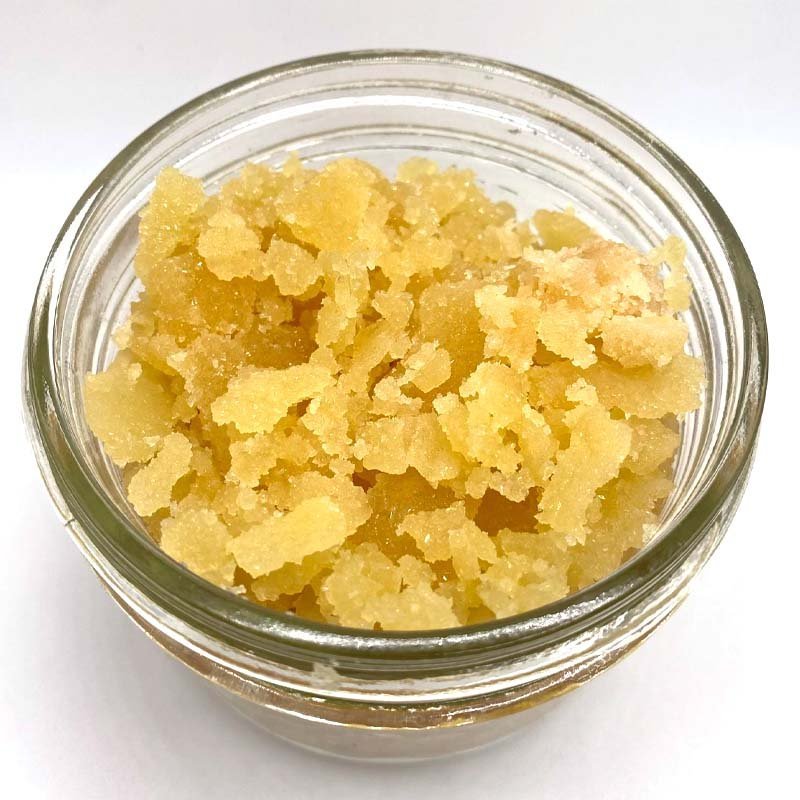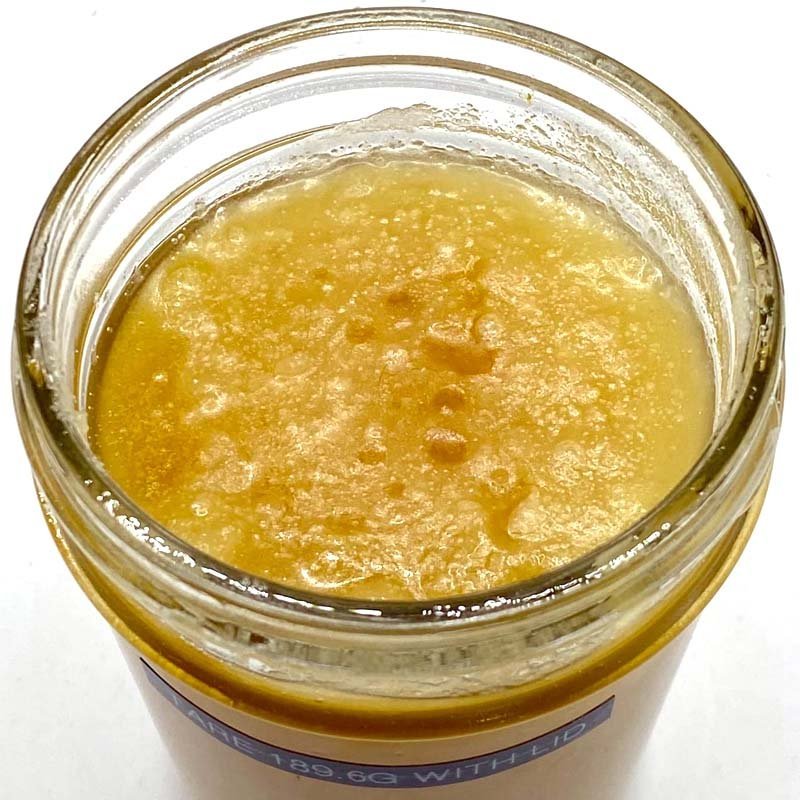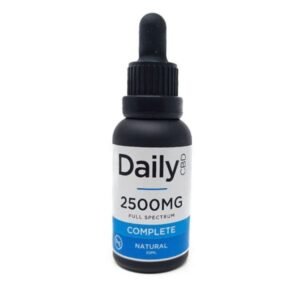Live Resin – GOAT Milk
$15.00 – $120.00
HYBRID: 50% INDICA: 50% SATIVA
FLAVOURS: NUTTY | VANILLA | SWEET
EFFECTS: EUPHORIC | UPLIFTING | HAPPY
MAY RELIEVE: MIGRAINES | DEPRESSION | FATIGUE | PAIN | STRESS
CONTAINS: SLIGHT AMOUNT OF NATURALLY DERIVED TERPENE
Description
Introduction to Goat Milk
Goat milk has been a dietary staple in various cultures for centuries, revered for its unique flavor and nutritional profile. Historically, it has been consumed across different regions, from the Mediterranean to the Middle East, and has played a significant role in traditional diets. Unlike cow’s milk, goat milk offers a distinct taste and a slightly different nutritional composition, making it a popular choice in many parts of the world.
One of the key reasons for the enduring popularity of goat milk is its digestibility. The smaller fat globules and lower levels of lactose in goat milk make it easier for many people to digest, especially those with mild lactose intolerance or sensitivities. This characteristic has made goat milk a preferred option for individuals seeking an alternative to cow’s milk.
In modern times, the demand for goat milk has seen a resurgence. Health-conscious consumers are increasingly recognizing the benefits of goat milk, including its rich nutrient content and potential health benefits. Goat milk contains higher levels of certain vitamins and minerals, such as vitamin A, calcium, and magnesium, which contribute to its nutritional value. Additionally, it is a good source of medium-chain fatty acids, which are known for their quick metabolism and energy-boosting properties.
Furthermore, goat milk is often praised for its unique taste, which is slightly sweeter and less tangy compared to cow’s milk. This distinct flavor can enhance various culinary dishes, from cheeses and yogurts to desserts and baked goods. The versatility and nutritional advantages of goat milk have led to its growing popularity in the food industry, with an increasing number of goat milk-based products available on the market.
Overall, goat milk’s rich history, combined with its unique characteristics and health benefits, has cemented its place as a valuable and sought-after dairy product. As awareness of its advantages continues to grow, goat milk is poised to remain a popular choice for consumers around the world.
Nutritional Profile of Goat Milk
Goat milk is a nutrient-dense beverage, offering a balanced profile of macronutrients and micronutrients that contribute to overall health. A serving of goat milk typically contains around 9 grams of protein, 10 grams of fat, and 11 grams of carbohydrates, making it a substantial source of dietary energy. Compared to cow’s milk, goat milk has slightly higher fat content, which includes medium-chain fatty acids that are more easily digestible and beneficial for those with certain digestive issues.
One of the standout features of goat milk is its rich micronutrient content. It is an excellent source of calcium, providing about 327 milligrams per serving, which is crucial for maintaining strong bones and teeth. Additionally, goat milk contains significant amounts of potassium, with around 498 milligrams per serving. Potassium is essential for regulating blood pressure and supporting cardiovascular health.
Vitamin D is another vital component found in goat milk, which aids in the absorption of calcium and promotes bone health. While cow’s milk is often fortified with vitamin D, goat milk naturally contains this nutrient, albeit in smaller amounts. Goat milk also offers a range of other vitamins, including vitamin A, which supports vision and immune function, and B vitamins, which are important for energy metabolism and neurological health.
Moreover, goat milk is a good source of essential minerals such as magnesium, phosphorus, and zinc. Magnesium is involved in over 300 biochemical reactions in the body, phosphorus is critical for the formation of bones and teeth, and zinc plays a role in immune response and cell growth.
When comparing goat milk to plant-based alternatives such as almond or soy milk, it’s evident that goat milk provides a more comprehensive nutrient profile. While plant-based milks are often fortified with vitamins and minerals, they may lack the naturally occurring nutrients found in goat milk. This makes goat milk a valuable addition to a balanced diet for those who can tolerate dairy.
Health Benefits of Goat Milk
Goat milk is renowned for its numerous health benefits, making it a popular alternative to cow’s milk. One of the primary advantages of goat milk is its easy digestibility. This is due to the smaller fat globules present in goat milk, which makes it easier for the body to break down and absorb. Additionally, goat milk contains significantly less lactose than cow’s milk, making it an excellent option for individuals who are lactose intolerant. Many people who experience digestive discomfort with cow’s milk find that they can tolerate goat milk without issues.
Another compelling reason to consider goat milk is its potential to benefit individuals with allergies and digestive issues. Goat milk contains lower levels of alpha-S1 casein, a protein that is often responsible for allergic reactions to cow’s milk. Consequently, people who are allergic to cow’s milk may be able to consume goat milk without adverse effects. Moreover, the unique composition of goat milk can soothe and support the digestive system, reducing symptoms such as bloating and gas.
Goat milk is also recognized for its potential anti-inflammatory properties. Studies suggest that consuming goat milk can help reduce inflammation in the gut, which is particularly beneficial for individuals with inflammatory bowel disease (IBD) or other gastrointestinal conditions. This anti-inflammatory effect is attributed to the presence of oligosaccharides in goat milk, which act as prebiotics and promote the growth of beneficial gut bacteria. This, in turn, enhances gut health and supports a robust immune system.
In summary, goat milk offers a host of health benefits, including easy digestibility, suitability for those with lactose intolerance, and potential anti-inflammatory effects. Its unique nutritional profile and gentle impact on the digestive system make it an appealing dietary choice for many individuals. Whether you are looking to address specific health concerns or simply seeking a nutritious alternative to cow’s milk, goat milk is a valuable addition to a balanced diet.
Goat Milk vs. Cow Milk: A Comparative Analysis
When evaluating goat milk and cow milk, several factors come into play, including taste, texture, nutritional content, and digestibility. Each type of milk offers unique benefits and challenges, making them suitable for varying dietary needs and preferences.
Starting with taste and texture, goat milk tends to have a slightly tangier flavor compared to the more neutral taste of cow milk. The texture of goat milk is generally smoother and creamier, which can be attributed to its smaller fat globules, enhancing its homogeneity. Cow milk, on the other hand, can feel slightly heavier and more viscous due to its larger fat globules.
Nutritionally, both types of milk are rich in essential vitamins and minerals. Goat milk contains higher levels of certain nutrients such as calcium, potassium, and vitamin A. It is also known for its higher content of medium-chain fatty acids, which are easier for the body to digest. Conversely, cow milk is typically richer in vitamin B12 and folic acid, which are vital for red blood cell formation and DNA synthesis.
One of the most significant differences lies in digestibility. Goat milk is often easier to digest, partly due to its protein structure, which is less likely to cause allergic reactions. The lactose content in goat milk is also slightly lower, making it a better option for individuals with mild lactose intolerance. Cow milk, while nutritious, can be harder for some people to digest, potentially leading to gastrointestinal discomfort.
Both goat milk and cow milk come with their respective pros and cons. Goat milk may be more suitable for individuals with digestive concerns or those looking for a richer nutrient profile in certain areas. Cow milk, with its accessibility and higher content of specific vitamins, remains a staple in many diets. Ultimately, the choice between goat milk and cow milk will depend on individual health needs, taste preferences, and nutritional goals.
Uses of Goat Milk in Cooking and Baking
Goat milk is a versatile ingredient that can be seamlessly incorporated into numerous culinary applications, offering both flavor enhancement and nutritional benefits. Its creamy texture and distinctive taste make it an excellent substitute for cow milk in various recipes. For those looking to diversify their diet or accommodate lactose sensitivity, goat milk can be a valuable addition to the kitchen.
One of the simplest ways to integrate goat milk into your diet is through smoothies. Replace cow milk with goat milk in your favorite smoothie recipes to enjoy a creamy texture and a slightly tangy flavor. Combine goat milk with fruits like bananas, berries, and spinach for a nutrient-packed breakfast or snack.
In soups and sauces, goat milk can be used to add richness and depth. For instance, swap cow milk for goat milk in a classic cream of mushroom soup or a béchamel sauce. The unique flavor of goat milk can enhance the overall taste profile, making your dishes more intriguing and satisfying. When making mashed potatoes, consider using goat milk instead of cow milk to achieve a creamier consistency and a richer taste.
Baking with goat milk is another delightful way to explore its culinary potential. In recipes for cakes, muffins, and pancakes, goat milk can be used in place of cow milk without altering the texture. The result is often a moist and tender crumb with a subtle, pleasant tang. Try using goat milk in a classic vanilla cake recipe or in chocolate chip muffins to experience the difference.
For those who enjoy experimenting with dairy products, goat milk can be used to make homemade yogurt, cheese, and even ice cream. These homemade creations not only offer superior taste but also allow you to control the ingredients and tailor the flavors to your liking.
Incorporating goat milk into your cooking and baking can elevate your dishes, providing a unique flavor and enhanced nutritional value. Whether you are making a simple smoothie, a savory sauce, or a delectable dessert, goat milk can be a fantastic alternative to cow milk, enriching your culinary experiences.
Goat Milk Products: From Cheese to Skincare
Goat milk is a versatile ingredient that finds its way into a diverse array of products, spanning from culinary delights to skincare essentials. One of the most popular goat milk products is cheese. Varieties such as chèvre, a soft fresh cheese, and feta, known for its crumbly texture and tangy flavor, showcase the unique characteristics of goat milk. These cheeses are celebrated not only for their distinctive taste but also for their nutritional benefits, including high levels of calcium and protein.
Beyond cheese, goat milk is also used to produce yogurt, ice cream, and butter. Goat milk yogurt is favored for its creamy texture and probiotic content, which supports digestive health. Goat milk ice cream provides a rich and creamy alternative to traditional cow milk ice cream, often appreciated by those with lactose intolerance. Goat milk butter, with its slightly tangy flavor, serves as a delicious and nutritious spread or cooking ingredient.
In the realm of skincare, goat milk is highly valued for its beneficial properties. Goat milk soaps and lotions are popular for their gentle, moisturizing qualities. Rich in vitamins A, D, and B6, as well as lactic acid, goat milk products help to exfoliate, hydrate, and nourish the skin. These products are particularly beneficial for individuals with sensitive skin or conditions such as eczema and psoriasis.
Several brands and artisanal producers have gained recognition for their high-quality goat milk products. For instance, Vermont Creamery is renowned for its award-winning goat cheeses, while Bend Soap Company is celebrated for its natural goat milk skincare products. These producers emphasize sustainable practices and the use of natural ingredients, ensuring that their products are both effective and environmentally friendly.
In conclusion, the versatility of goat milk makes it a valuable ingredient in both the culinary and skincare industries. Whether you are savoring a piece of chèvre or pampering your skin with a goat milk lotion, the benefits of goat milk are plentiful and well worth exploring.
How to Source and Store Goat Milk
When it comes to sourcing goat milk, several options are available to ensure you receive a high-quality product. Local farms are often the best places to start, as they allow you to directly observe farming practices and verify the quality of the goat milk. Many local farms offer organic or grass-fed options, which are preferable due to their enhanced nutritional profile and lower levels of harmful chemicals.
Grocery stores and health food stores are also viable sources for goat milk. These establishments typically stock both fresh and pasteurized goat milk, including organic varieties. It’s essential to read labels carefully to ensure you’re getting the product that best meets your dietary needs. Online retailers provide another convenient option, especially if you are looking for specialty goat milk products. Many online stores offer detailed product descriptions and sourcing information, enabling you to make an informed choice.
Once you’ve sourced your goat milk, proper storage is crucial to maintain its freshness and nutritional value. Fresh goat milk should be stored in the refrigerator at a temperature between 35 to 40 degrees Fahrenheit (1.6 to 4.4 degrees Celsius). It is best kept in glass containers, which can help preserve its quality better than plastic. Fresh goat milk typically has a shelf life of about 7 to 10 days. If you notice any changes in smell, taste, or texture, it’s best to discard the milk.
Pasteurized goat milk has a longer shelf life due to the heat treatment it undergoes, which kills many of the bacteria present. Unopened pasteurized goat milk can last up to three weeks in the refrigerator. Once opened, it should be consumed within a week. For extended storage, consider freezing goat milk. When frozen, goat milk can last up to six months. Be sure to leave some space in the container before freezing, as liquids expand when frozen.
In summary, sourcing high-quality goat milk and storing it properly are critical steps in ensuring you get the maximum benefits from this nutritious beverage. Whether you choose fresh or pasteurized, taking the time to understand the best practices for storage will help maintain the milk’s quality and nutritional value.
Potential Drawbacks and Considerations
While goat milk offers numerous benefits, it is essential to consider potential drawbacks and considerations before incorporating it into your diet. One of the primary issues is the cost. Generally, goat milk tends to be more expensive than cow’s milk due to lower production volumes and higher farming costs. This can make it less accessible for some individuals or families, particularly those on a tight budget.
Availability is another consideration. Goat milk is not as widely available as cow’s milk and may not be found in all grocery stores or regions. This limited availability could pose a challenge for those interested in making it a regular part of their diet. Additionally, the taste of goat milk can be a significant factor. Some people find its flavor to be slightly tangier and more robust compared to cow’s milk, which may not appeal to everyone’s palate.
Allergic reactions and intolerances are also important to address. Although goat milk is often touted as a hypoallergenic alternative to cow’s milk, it can still cause allergic reactions in some individuals. Those with a known allergy to cow’s milk proteins should exercise caution and consult with a healthcare professional before trying goat milk. Similarly, people with lactose intolerance should be aware that goat milk contains lactose, albeit in slightly lower amounts than cow’s milk. It is advisable to introduce goat milk into one’s diet gradually, starting with small quantities to gauge tolerance.
Balanced information is crucial for making informed decisions. While goat milk has its advantages, it is essential to weigh these benefits against potential drawbacks. By considering factors such as cost, availability, taste preferences, and possible allergic reactions, individuals can make well-rounded choices about whether goat milk is a suitable addition to their nutritional regimen.
Additional information
| Weight | 1Gram, 2Grams, 7Grams, 14Grams, 28Grams |
|---|







Reviews
There are no reviews yet.